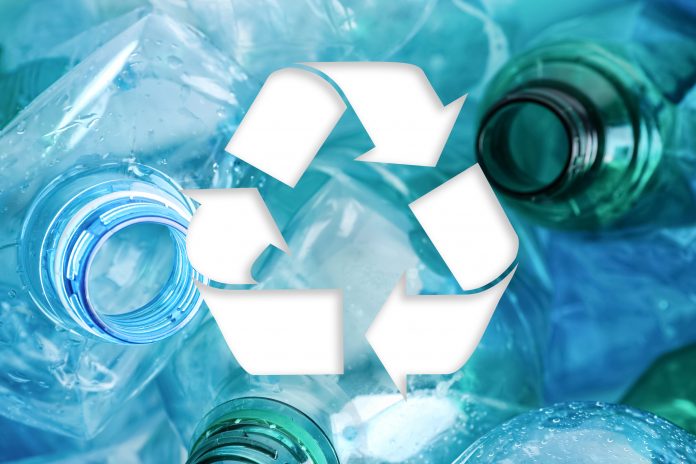Laura Clews, UK & European Patent Attorney at Intellectual Property Firm, Mathys & Squire, highlights recent innovations in recycling and replacing plastics
Global Recycling Day, which took place this year on 18 March 2020, was set up by the Global Recycling Foundation to help recognise, and celebrate, the importance of recycling in securing precious primary resources, reducing pollution and preserving biodiversity for future generations.
Overall, efforts to increase recycling have improved over the last 10 years. In the UK alone, based on figures recorded in 2017, the UK recycling rate for household waste was 45.7%, a 0.5% increase from 2016, but the EU has set a target to boost this figure to 50% by 2020.(1)
Since 2018, there has been a shift in how waste is recycled. Previously, countries around the world exported recyclable materials (accounting for almost half of all global recycling) to countries in the east, such as China, for reuse in their recycling programs, as this was more economical than developing national recycling programmes. When China announced its ban on importing waste (including plastics) in 2018, many countries – including the UK – had to begin work on developing economical recycling facilities. The alternative would be to use landfill sites, which is of course only a short-term fix limited by the amount of land which can be assigned to such facilities. Given that plastics may take several hundreds of years to decompose, landfill sites in the UK would quickly reach capacity.
Furthermore, landfill sites are known to present a serious risk to the contamination of groundwater, which can cause detrimental effects to the surrounding environment and its inhabitants.(2) In addition, just in the UK alone, more than 1,200 coastal landfill sites are in danger of spilling their waste contents into the sea.
In light of awareness campaigns such as Global Environmental Day and through the campaigning of individuals in the media spotlight, including David Attenborough and Greta Thunberg, the environmental impact of day-to-day life – and specifically waste material – has been brought to the forefront of societal concerns. In particular, consumers are showing more of an interest in and awareness around recycled goods and more environmentally friendly alternatives to single-use plastics.
In response to consumer concerns, the UK government has pledged to focus on steering the UK towards a greener future, as highlighted in the recent Budget announcement (3). Innovative companies in the green technology space are also funding intensive research to find environmentally friendly and economically viable methods of recycling plastic and/or suitable alternative packaging materials.
Recycling plastics
One company looking to find more effective and environmentally friendly methods of recycling plastics is Green Lizard Technologies (GLT). The method of recycling waste polyethylene terephthalate (PET) developed by this company uses proprietary catalyst systems to break down the PET polymer chain to its raw materials (BHET – bis(hydroxyethyl)terephthalate). Once PET has been broken down to BHET, it can then be reused to form other plastics or alternative polymeric materials.
It has been reported that this process produces recycled materials which are essentially free from contaminants, and therefore can be reused to produce packaging in sectors governed by strict regulations relating the use of recycled plastics, i.e. the food and drink industry, where consumers are rightfully concerned about the materials used for the packaging of products they will ingest. Perhaps one of the more challenging areas within the food and drink industry is the manufacture of water bottles from recycled materials. As recycled plastics can appear cloudier than virgin plastic materials, some manufacturers are concerned that the resulting product may be less appealing to consumers. However, the recycling process produced by GLT has now successfully produced clear recycled plastics.
In a report published in January 2020 by Green Alliance, titled ‘Plastic promises: What the grocery sector is really doing about packaging’, research has been carried out to consider the kneejerk reaction by many retailers and suppliers to replace single-use plastics with other materials which are considered to be ‘more environmentally friendly’ in response to growing pressures from the public. The report highlights that often single-use plastic packaging is simply replaced with alternative single-use materials, such as glass, paper, wood and biodegradable materials, without undertaking a rigorous analysis of the environmental impact of such materials compared to single-use plastics.
Worryingly, many reports have found that due to factors such as the manufacturing process, the number of times consumers are likely to reuse these materials and the availability of recycling schemes, these alternative materials can in fact be more damaging to the environment than single-use plastics. For example, a study for the Northern Ireland Assembly in 2011 found that paper bags generally require four times more energy to manufacture compared to plastic bags.
Turning food waste into environmentally friendly materials
As well as recycling plastics, some companies have focused their attention on recycling food and drink-related waste products – or more specifically, as in this example, coffee. In modern society, coffee is not simply a drink choice for most adults, but an essential for day-to-day life. In fact, it has been reported that in the UK 95 million cups of coffee are consumed a day, which produces around 500,000 tonnes of used coffee grounds every year, most of which simply ends up on landfill sites (see ‘Put Your Coffee Waste to Work’, by Bio-bean).
Fortunately, Berlin-based company, Kaffeeform, has found a way to repurpose this waste product, turning coffee grounds (and other plant-based resources) into durable cups that are hardened with biopolymers.
In addition, New York-based biotech company, Ecovative Design, has produced a new environmentally friendly material made from mushrooms. The material has been used to form surfboard blanks to replace those previously used which were formed from expanded polystyrene or polyurethane foam with a fibreglass coating.
The blanks, which are entirely biodegradable, are made from a material called Myco foam which is formed from mycelium (the white, glue-like, branching part of fungus referred to as hyphae) and organic farm waste, such as corn husks, straw and lentil pods. During manufacture, the mycelium grows, feeding on the organic waste, and forms long entangled fibres. This new material has been an immediate success, and not only in the surfing world. Ecovatve Design has now branched out into making faux-leather materials, packaging and skincare products, forming partnerships with well-known companies such as Bolt Threads, IKEA and DELL.
References











